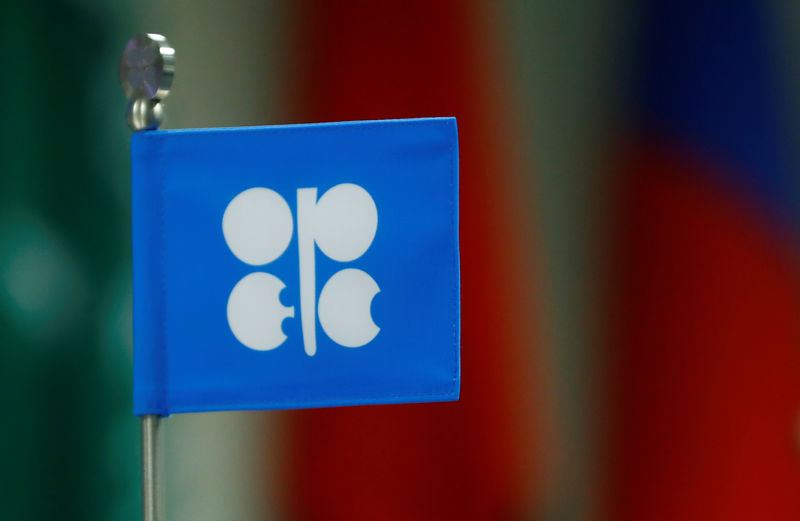By Alex Lawler
LONDON (Reuters) - OPEC oil supply fell in December by the largest amount in almost two years, a Reuters survey found, as top exporter Saudi Arabia made an early start to a supply-limiting accord while Iran and Libya posted involuntary declines.
The 15-member Organization of the Petroleum Exporting Countries pumped 32.68 million barrels per day last month, the survey on Thursday found, down 460,000 bpd from November and the largest month-on-month drop since January 2017.
The survey suggests Saudi Arabia and some of its allies acted unilaterally to bolster the market as crude prices slid on the possibility of a new glut. A formal accord by OPEC and its allies to cut supply in 2019 took effect only on Tuesday.
Oil (LCOc1) has slid to $56 a barrel from a four-year high of $86 in October on signs of excess supply.
While OPEC has not ruled out further action, officials hope prices will be supported by further output declines in January as producers implement the new deal.
"Naturally, it will adjust from now on," said an OPEC delegate, referring to the downward trend in production. "I hope the market will recover soon."
OPEC, Russia and other non-members, an alliance known as OPEC+, agreed in December to reduce supply by 1.2 million bpd in 2019. OPEC's share of that cut is 800,000 bpd.
The deal came just months after an accord to pump more oil, which in turn partially unwound a supply cut that took effect in 2017.
The drop in OPEC output in December is the largest month-on-month decline since January 2017, the first month of the earlier supply-cutting deal, according to Reuters surveys.
SAUDI CUT
The biggest drop in OPEC supply last month came from Saudi Arabia and amounted to 400,000 bpd, the survey showed.
Saudi supply in November had hit a record 11 million bpd, after U.S. President Donald Trump demanded more oil be pumped to curb rising prices and make up for losses from Iran.
The kingdom has said it plans to go even further in January by delivering a larger cut than required under the OPEC+ deal.
The second-biggest drop occurred in the United Arab Emirates, which like Saudi voluntarily scaled back supply, the survey found.
The third largest was an involuntary cut by Libya, where unrest led to the shutdown of the country's biggest oilfield.
Output from Iran declined further as U.S. sanctions discouraged companies from buying its oil. According to industry sources, however, Iran maintained its exports, helped by sanctions waivers granted to eight buyers as well as dogged Iranian efforts to keep selling crude.
Among the countries boosting output, the biggest increase was in Iraq due to the restart of Kirkuk crude exports and a rebound in shipments from the country's southern terminals.
Output also rose in Kuwait and Nigeria.
An OPEC list of output targets seen by Reuters and other news organizations will provide a basis to calculate compliance with the new supply deal in the January survey. As of 2019, OPEC has 14 members following Qatar's departure.

The Reuters survey aims to track supply to the market and is based on shipping data provided by external sources, Refinitiv Eikon flows data and information provided by sources at oil companies, OPEC and consulting firms.